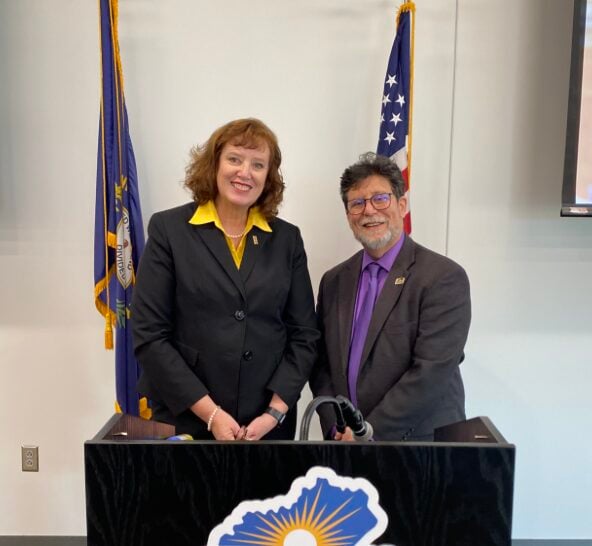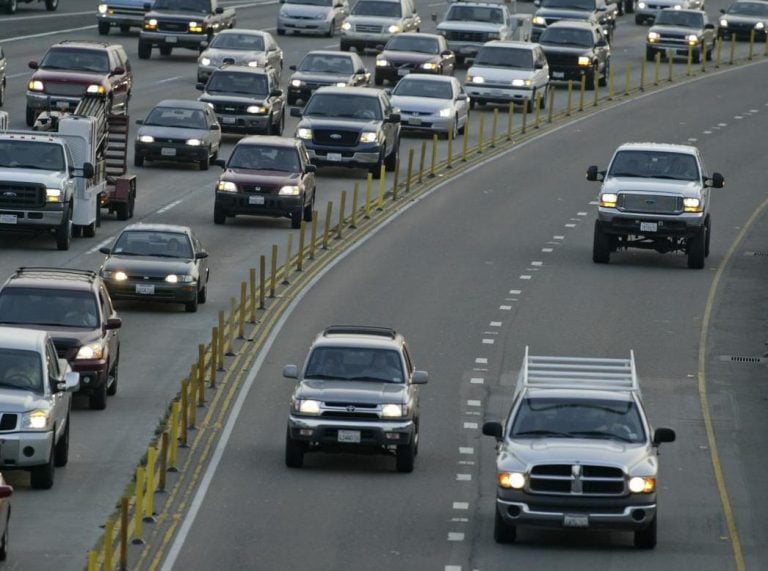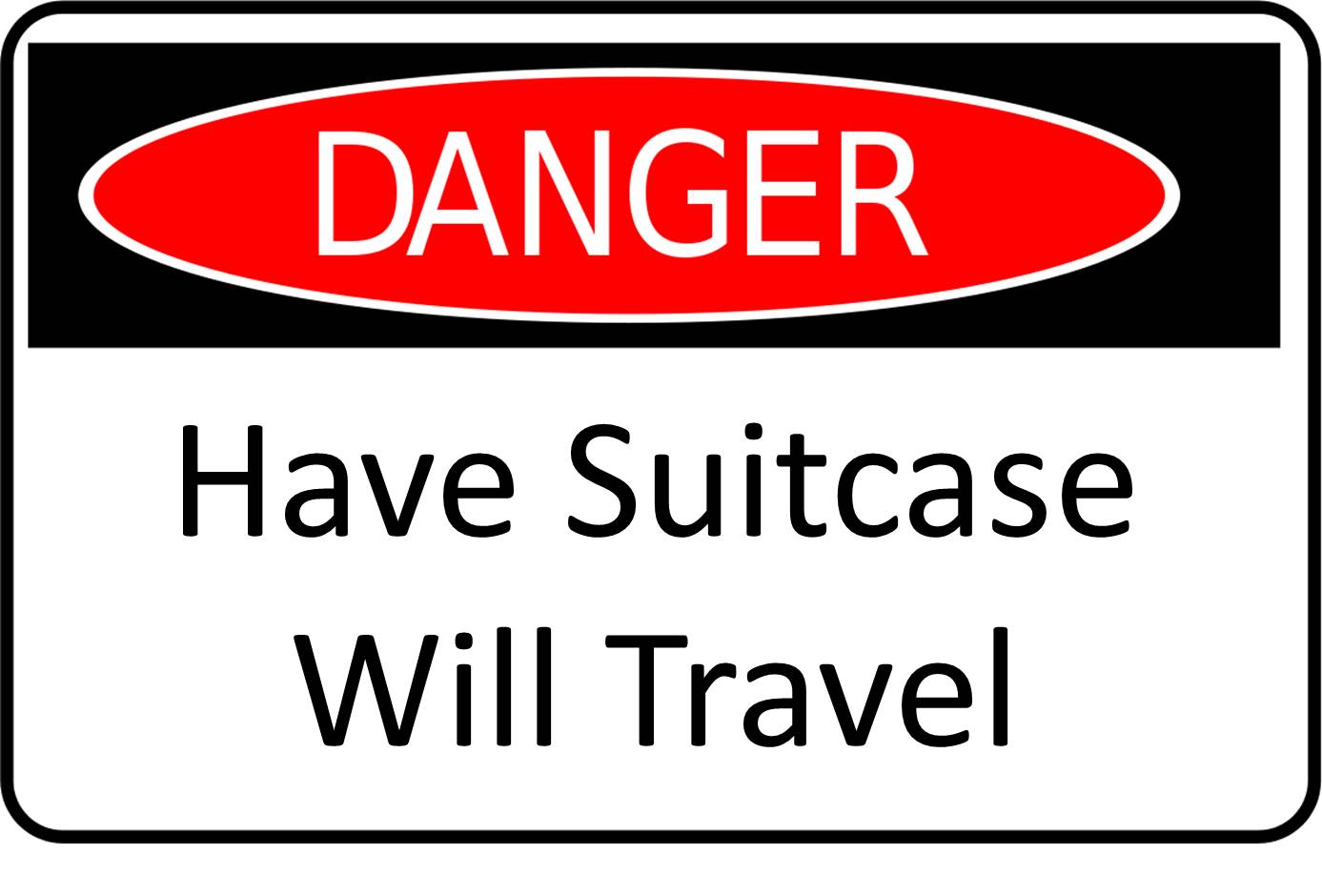There are all kinds of travelers in the world. Some of us very rarely leave the confines of our own communities. Others take annual vacations and family trips during the holidays. Then there are some who possess the wanderlust gene and are destined to travel and explore at every opportunity.
According to recent research, this urge to travel can be traced back to a person’s DNA … to a genetic derivative of the gene DRD4-7R, which is associated with the dopamine levels in the brain. People with this gene would include many of our early explorers, such as Christopher Columbus, and modern-day ones like astronaut Neil Armstrong.
Each week KyForward’s “resident riskologist” Keven Moore shines the light on America’s riskiest behaviors – from unsafe driving practices to workplace stress to common home accidents. And in the process, he provides the information needed to help people play it a little safer.
I inherited this gene, and I realized it the day I received my first bicycle (awkward banana seat and all), giving me the freedom to explore my surroundings. As pre-teen and early teenager, I often ventured miles away from home with the directive to return home when the street lights came on. I would visit surrounding neighborhoods, parks, pools, malls, UK campus, the airport and even downtown Lexington nearly five miles away.
People like me are always trying to see something new or different, and will volunteer to travel just about anywhere at a moment’s notice, just for the experience. I once took a trip to Fort Meyers Beach in 1982 for spring break with just an hour’s notice. I would have left sooner if I didn’t have to take the time to quit my cook position at McDonald’s and find my flip-flops.
After finishing college my wife and I lived in eight different locations in just three years, before settling back in Kentucky in 1996. Early in my professional career, I had the opportunity to travel often and far away, visiting 35 states by my mid-30s.
My lust for such travel has been tamed with responsibilities, including marriage, kids and all their activities, and, of course, saving to send those kids to college. Today I may take four to five out-of-state trips a year for work, but most of my travels are within a 250-mile radius, mostly in the state of Kentucky.
When traveling the state, however, I still always opt for the different way home and usually the road less traveled. Likewise, I often stop to eat at a local restaurant or find the local barber shop for a quick cut and shave, just to experience the local flavor. (A barber with a razor in his hand once accused me of being federal agent after I asked too many questions while in his chair.)
It appears the wanderlust gene has now been passed down to at least one of my children. As it’s not uncommon to call my daughter and discover that she is two states away water skiing or attending some music festival. Which brings me to the reason for tackling this issue.
According to researchers, people with the wanderlust gene are more likely to take higher risks without much thought to safety, which I’m sure they/we believe add to the adventure of the experience. But such behavior can also land you in some pretty scary and unsafe situations.
Here some travel risks to be aware of:
Roadways – This one is probably no surprise; roadway crashes are a major cause of death among otherwise-healthy travelers. The risk is especially higher in developing nations where traffic safety is less than desirable and many vehicles may not have working seat belts, lights, brakes and proper tires. In addition, many travelers are too dependent on GPS, and because they are unfamiliar with an area and often become distracted. You should familiarize yourself with local driving and traffic laws, avoid traveling at dark and in overcrowded vehicles, wear seat belts and, while walking, face traffic. Never jaywalk. It is also advised that you bring a companion to help you navigate as your explore.
Accommodations – There are a surprising number of injuries, and even deaths, connected with your choice of hotel accommodation. Many hotels in foreign countries are not held to the same safety standards that they are in the U.S., and it’s not uncommon to find them lacking smoke alarms or sprinkler systems, and equipped with poorly vented heating devices that emit carbon monoxide back into the building. The single most important thing you can do as it relates to your safety is to take the time to research your hotel accommodations, their safety records, area crime statistics. Reading reviews is also advised.
Pools – According to statistics travelers are more likely to drown abroad than at home. Most people will assume they need to be more cautious in lakes and rivers, but you are 12 times more likely to drown in a pool; children under 7 are most vulnerable. It’s important to know your limits, swim sober and never swim alone.
Crime – Before leaving the hotel, ask if there are any areas you should avoid. Remember that there is safety in numbers and always try to travel with a companion. Looking lost will make you an easy target. If you need directions don’t ask a pedestrian, but instead step into a restaurant or store, or find a police officer. Stay in public areas and do not wander to far off the beaten path. Be wary of strangers who ask a lot of questions about you and your vacation plans, and never carry large amounts of cash. Separate the larger bills from the smaller ones to avoid flashing all your bills in full public view. You may want to consider carrying a decoy wallet.
Civil unrest – Before traveling to another country, it’s important to check with the U.S. Department of State for the most current travel advisories. Far too often, travelers will find themselves right in the middle of civil unrest or even a civil war. Some even become targets of kidnapping for ransom.
Communicable diseases – It’s been estimated that 4 percent of deaths among travelers overseas are due to communicable diseases. This risk can be lowered if you stay current on your vaccinations and practice good personal hygiene while traveling.
Be safe, my friends.
Keven Moore works in risk management services. He has a bachelor’s degree from University of Kentucky, a master’s from Eastern Kentucky University and 25-plus years of experience in the safety and insurance profession. He lives in Lexington with his family and works out of both the Lexington and Northern Kentucky offices. Keven can be reached at kmoore@roeding.com.























